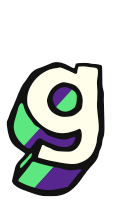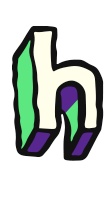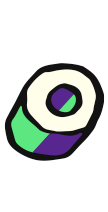You can search for anything linked to emotional well‑being in our handy A-Z guide.


-
CAMHS (Children and Adolescent Mental Health Services)
CAMHS are specialist mental health services for children and young people. They offer assessments and treatments for children and young people who have emotional, behavioural and mental health difficulties. Referrals to CAMHS are currently made via the CAMHS Single Point of Access (SPA). Any professional who has parental consent, can make a referral to CAMHS, and parents/ carers can also refer on their children’s behalf.
You can find out more about CAMHS at My CAMHS
-
Caring / Being a Carer
Some young people have responsibility for caring for or looking after someone else close to them. Caring for others can affect how a young person is feeling and affect their choices in life. It can sometimes be challenging. It’s really important that the carer looks after themselves so they can stay healthy while looking after others. Sometimes helpers need some support too! You can find local people to talk to at Babble.
-
Change
There's a famous phrase that the only thing in life that’s certain is change.
Small and large changes happen in our lives all the time. Sometimes we are grateful for changing circumstances and can even be excited about them, other times it's difficult to “go with the flow” and to remain positive especially when we don't want or didn't expect the change, whatever it may be. It can leave us feeling insecure, upset or anxious or out of control. Adjusting to change can take time and different people respond differently. What's a good change for one can be terrifying for another. Maybe sometimes giving yourself a bit of time to adjust is all you need – other times talking to someone and getting support can really help.
For some tips on how to cope you can visit Young Minds, or contact Childline on 0800 1111.
-
Cognitive Behavioural Therapy (CBT)
Cognitive Behavioural Therapy is a therapy that trains us to think about things differently and this can help with how we feel and behave. It’s a “short term therapy” which means it’s designed to make a real difference quickly. It can be really helpful with things like anxiety and depression and can really help people to cope and make positive changes. CBT does not involve talking lots about your past, it involves coming up with ways to feel and cope better in the future, and break up problems into manageable chunks.
You can find out more at RC Psych.
-
Complaints (about services)
There are lots of services set up to help and support children and young people. Most of the time, people will have good experiences of these services but sometimes people may feel as if they have been treated unfairly or that professionals have behaved in a way they don’t think they should have. You always have the right to challenge a service or professional if you feel that you have been treated unfairly and to ask them to put it right.
It could be that you are happy just to tell that professional how you feel about the service they have provided and ask them to make it right. If you feel as though you want to take this further, all organisations should have a complaints procedure that you can ask to see. This will then tell you what to do next which may be putting your complaint in writing in a letter to a manager, or speaking to a different department or organisation about it. Some people can be a bit nervous about doing this on their own so find it helpful to ask for a Youth Worker or friend for support to make their complaint. It could be helpful to think through what you want to say beforehand and what you want them to do about your complaint...
It’s easy to be put off asking for help when someone has had a bad experience. It’s very important that people get the services they need, and so if things don’t improve asking to see a different person, or going to another place for help could be the next step.
The NHS Complaints Advocacy Service is a free and independent service that can help you make a complaint about a National Health Service (NHS).
-
Conduct Disorder
Most children and young people will be seen as ‘misbehaving’ by adults at some point in their lives - this is usually accepted as a part of growing up. Some children or young people repeatedly misbehave regularly, when their behaviour is much worse than would be expected of someone of their age and if it affects their ability to lead a normal life, it may be called a ‘Conduct Disorder’. This could include things like fighting, harming people or animals, stealing and vandalism. In older teenagers it could also involve taking illegal drugs or having unprotected sex. Again, all of these things may be seen as a ‘normal’ part of growing up. If this behaviour causes the young person to have problems at school, college or at home, it may be helpful for them to speak to someone about it. A form of psychotherapy called Cognitive Behavioural Therapy has been found to be useful with conduct disorders as it helps with problem-solving skills and managing anger safely.
You can find out more at The Royal College of Psychiatrists.
-
Confidentiality
When you talk to any professional the conversation is confidential, even if you are under 16. That means no-one needs to know anything about your conversation.
If a professional feels you or someone else is at serious risk of harm, e.g. if they think your life is being threatened, or if they think that someone is abusing you, they may have to break that confidentiality and tell someone else to make sure you and others are safe. If they need to pass on information, they should try to talk to you about this first.
If you want to be certain no one finds out about your conversation you can talk to Childline or Samaritans or most counsellors who have a higher level of confidentiality. This means they can keep more of what you say completely confidential compared to other services. You can talk to them about anything, including really serious things and things that are happening now, and no no-one will find out unless there is an immediate risk to someone’s life, or unless you ask them to tell someone. You can check the confidentiality “policies” on their website or ask them to explain it to you on the phone before you speak to them about your issue – that way you are totally in control.
-
Coping
When life is difficult, it's important to be able to cope without feeling emotionally overwhelmed. Another word for this is 'resilience'. In other words, resilience is the ability to cope with upsetting or difficult life events and....
- be the best we can be
- deal effectively with difficulties
- become stronger and feel OK
- bounce back
- learn from mistakes and bad experiences and then be able to leave them behind
Some links to sites that can help you cope with particular events are below. There is also more advice on building your ability to cope in our 'Getting Emotionally Fit' section.
- For help coping after a traumatic event visit RC Psych - Coping After a Traumatic Event
- For help coping with physical illness visit RC Psych - Coping With Physical Illness
- For help coping with stress visit RC Psych - Coping With Stress
- For help coping when life is difficult visit RC Psych - U Can Cope - or visit Rise Above
-
Counselling and Talking Therapies
Counselling is a kind of “talking therapy” where a professional listens to someone without judging or criticising, and supports them to make sense of difficult feelings, things that are happening now or that have happened in the past.
Even if people have supportive family and friends around them, it can be difficult to talk to them about certain things, and sometimes they just don’t know how to help. Talking to someone who is professionally trained to help can make a real difference. Asking for help is a sign of strength, not a weakness, and no-one needs to know about someone going to counselling, or what they talk about when they’re there as it is completely confidential.
The thought of counselling can seem scary or overwhelming at first, counsellors understand that people may feel this way and are trained to be patient and understanding. There are no expectations of how someone should act, they don't even have to know what to say, the counsellor will help them to find a way to communicate what is happening for them, and can sometimes use arts materials or activities to help them do this. A counsellor will not tell someone what to do – they will help them find their own way and make suggestions.
Someone does not have to have experienced a “massive problem” to go to counselling, counselling can help people manage anything that is making life harder to handle and enjoy. Some counselling happens face to face, but people can also get counselling online if that feels better.
For more info on talking therapies go to the Mental Health Foundation.
-
Crisis











If you still have unanswered questions, you can go to a service in your area for information & advice:




























